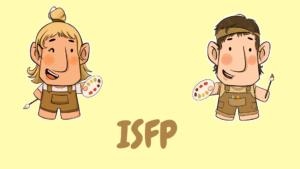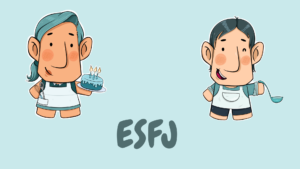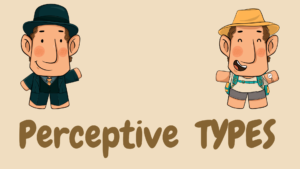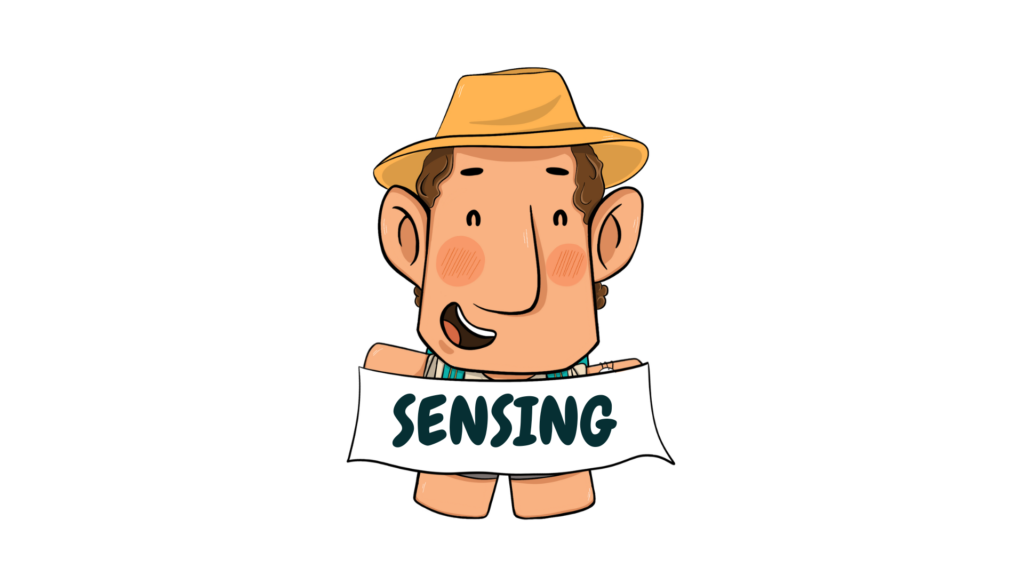
Are you the type of person who prefers to keep both feet firmly planted on the ground, with a trusty spreadsheet in hand and a keen eye for the nitty-gritty details? Do you find comfort in the tangible, the practical, and the tried-and-true? If so, congratulations, you might just be the Sherlock Holmes of Sensing tendencies! Your brain is wired to appreciate the here and now, to revel in the tangible, and to make decisions based on solid evidence. You’re like a detective with a magnifying glass, always on the hunt for clues and details that others might overlook. Dare to dive deep into the world of Sensing, the possibilities are endless.
Where Did the Sensing Word Come From?
The concept of sensing, as it relates to personality types, has its origins in the work of Swiss psychiatrist Carl Jung. Jung observed that people perceive the world in two main ways: through sensing (gathering information through the five senses) and through intuition (perceiving patterns and possibilities beyond what is immediately observable). He also noted that people make decisions based on either thinking (using logic and analysis) or feeling (considering the emotional impact of decisions).
Building on Jung’s theory, Katharine Cook Briggs and her daughter Isabel Briggs Myers created the Myers-Briggs Type Indicator (MBTI) to help people better understand their own personalities and those of others. The MBTI includes four dichotomies: extraversion/introversion, sensing/intuition, thinking/feeling, and judging/perceiving.
Sensing was included as one of the dichotomies because Briggs and Myers believed that people who rely on their senses to gather information tend to be more detail-oriented, practical, and focused on the present moment. They are often concrete thinkers who prefer to deal with facts and figures rather than abstract concepts.
Individuals who identify with the sensing personality type may enjoy hands-on activities such as cooking, gardening, or woodworking. They may also be drawn to careers that require attention to detail, such as accounting or engineering.
Overall, the concept of sensing as it relates to personality types is a valuable tool for understanding how people perceive and interact with the world around them. By recognizing our own preferences and those of others, we can improve communication, build stronger relationships, and achieve greater success in our personal and professional lives.
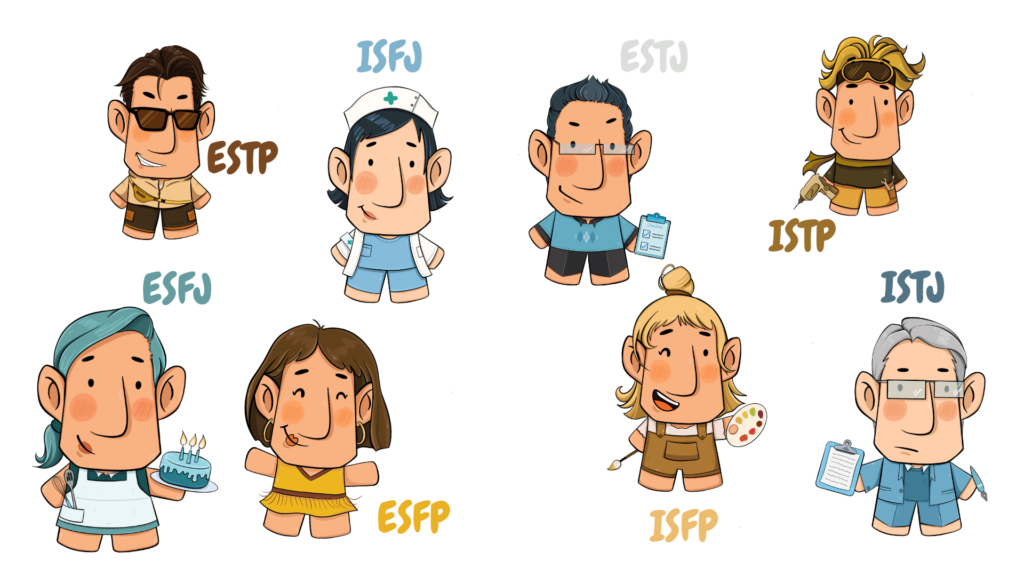
Broadened Perspective on Sensing
Sensing acts as a cognitive module, guiding individuals to perceive concrete information without reliance on speculative reasoning. It empowers individuals to engage deeply with the tangible world, fostering practicality, real-world awareness, present-focus, and hands-on learning. Through deliberate cultivation, individuals can enhance their Sensing ability, integrating it as a vital component of their cognitive repertoire. Embracing the varied expressions of Sensing fosters inclusive appreciation, celebrating each individual’s distinctive cognitive strengths and propelling collaborative innovation. This perspective provides a profound understanding of Sensing’s impact on individuals and societal dynamics, illuminating its intrinsic value within the MBTI framework.
Heightened Characteristics of Sensual Individuals
· Grounded Practicality
Sensual individuals gravitate towards practicality, focusing on tangible details and empirical experiences as a foundation for decision-making and problem-solving.
· Real-World Awareness
They excel in processing and retaining factual data, relying on past experiences and hands-on learning to navigate their immediate surroundings with precision.
· Present-Centric Focus
They are inherently attuned to the present moment, directing their attention to what is observable and verifiable in their environment.
· Hands-On Learning
Sensual individuals thrive in experiential learning, preferring direct interaction and practical application to understand and engage with new concepts and information.
· Concrete Orientation
They exhibit a strong preference for gathering information that is directly observable and verifiable, appreciating the tangible aspects of their environment.
· Preference for Facts and Data
They rely on specific details and empirical evidence, often favoring established methods and proven practices when making decisions and navigating challenges.
Development and Nurturing of Sensing
Development and nurturing of Sensing within individuals is essential for honing this cognitive preference. Through deliberate practices and exposure to diverse experiences, individuals can refine and elevate their Sensing acumen. Actively engaging in practical problem-solving tasks, hands-on learning experiences, and immersing in real-world challenges can aid in fortifying perceptual acuity related to Sensing. This ongoing cultivation allows individuals to integrate Sensing as a pivotal element in their cognitive repertoire, enhancing their ability to navigate their surroundings effectively and make well-informed, evidence-based decisions.

Pros and Cons of Being a Sensual
Pros of Being a Sensual
Practical Problem-Solving
Prospective employees with a strong Sensing preference may excel in roles that demand practical, hands-on problem-solving abilities, such as engineering, healthcare, and skilled trades. Their focus on concrete details and real-world data often allows them to navigate challenges effectively and produce tangible results.
Attention to Detail
Sensual individuals are often recognized for their meticulous attention to detail, which can be highly beneficial in professions that necessitate precision and accuracy, such as quality control, data analysis, or technical fields.
Realistic Approach to Planning
Their emphasis on present realities and tangible details often equips them with a practical and realistic approach to planning and execution, making them reliable team members who are adept at staying grounded and ensuring that projects are feasible and well-implemented.
Hands-On Learning Strengths
Sensual individuals may thrive in environments where hands-on learning is valued, such as technical training, laboratory environments, or fieldwork. Their practical approach often allows them to grasp concepts thoroughly through direct experience and application, leading to a robust understanding of real-world phenomena.
Adaptability in Dynamic Environments
In dynamic or fast-paced environments, Sensual individuals may demonstrate adaptability and a quick response to immediate, observable changes, contributing to a flexible and responsive work ethic that allows them to efficiently adjust to evolving circumstances.
Cons of Being a Sensual
Potential Resistance to Change
Sensual individuals, rooted in practicality and tangible experiences, may exhibit resistance to abrupt or abstract changes that deviate from established methods. This can sometimes lead to challenges when adapting to unconventional or paradigm-shifting strategies within a work environment.
Overemphasis on Concrete Details
Their meticulous attention to concrete details may at times result in a tendency to overlook broader implications or long-term strategic planning, potentially hindering their ability to see the big picture or conceptualize abstract ideas effectively.
Preference for Established Methods
In some contexts, Sensual individuals may display a strong preference for traditional or proven methods, which could hinder their willingness to explore novel approaches or embrace innovative, untested solutions—limiting the organization’s capacity for cutting-edge progress.
Limited Focus on Immediate Realities
Their inherent focus on the present moment and immediate, verifiable data may lead to a potential oversight of futuristic trends or long-term forecasting, possibly impeding the organization’s ability to anticipate and prepare for upcoming challenges.
Challenges in Fostering Abstract Creativity
Sensual individuals might encounter difficulty in fostering abstract or conceptual creativity, especially in contexts requiring unconventional or visionary thinking. Their emphasis on practicality and tangible details may present challenges when engaging in highly imaginative or abstract problem-solving.

Sensual Assessment Methods
Myers-Briggs Type Indicator (MBTI) Questionnaire
The MBTI questionnaire includes specific questions designed to gauge an individual’s preference for sensing over intuition. The questionnaire assesses how individuals tend to gather information, whether they rely more on concrete, realistic data (sensing) or on abstract, imaginative patterns (intuition). By evaluating the responses based on dichotomous choices, the assessment helps identify a person’s cognitive preference.
Behavioral Observation and Response
This method involves observing how individuals respond to various work-related scenarios and tasks. By reviewing their approach to practical, hands-on activities and their attentiveness to concrete details, employers can gain insights into their preference for sensing over intuition. The assessment includes observing how individuals engage in real-world problem-solving and their proficiency in executing tasks based on verified, empirical data.
Competency-Based Interviews
Competency-based interviews focus on probing an individual’s experiences, competencies, and work behaviors. By delving into how candidates have handled past challenges and their approach to problem-solving, interviewers can assess how individuals leverage sensory data and their attentiveness to practical, real-world experiences in decision-making and work-related contexts.
Specific Task Performance Analysis
This method involves evaluating an individual’s performance in tasks that demand attention to concrete details and practical know-how. Employers can assess how well an individual operates in settings requiring hands-on execution and their ability to utilize empirical facts and real-world experiences to accomplish tasks effectively.
Adaptable Work Sample Tests
Adaptable work sample tests focus on creating job-related scenarios that require individuals to rely on real-world data and concrete information to solve practical challenges. By evaluating how well individuals address these scenarios, employers can gain insights into their capacity to engage sensory data and their proficiency in hands-on, empirical problem-solving and decision-making.
The Abundance of Sensual people
The abundance of Sensual individuals within the global population is substantial, representing a significant dimension of cognitive diversity. From skilled artisans to detail-oriented professionals, Sensual individuals’ predilection for real-world experiences and practical, hands-on engagement permeates various cultures and professions worldwide. Their presence is evident in a wide array of vocations, including technical trades, healthcare, engineering, and other fields that necessitate a meticulous focus on concrete details. This abundance underscores the pervasive practicality and real-world awareness that underpin the fabric of human endeavors, contributing to the holistic richness of professional experiences. In essence, the prevalence of Sensual individuals fosters a balanced cognitive landscape, where a hands-on, detail-oriented approach harmonizes with other cognitive orientations, culminating in a multifaceted tapestry that mirrors the diversity and complexity of human cognition within the global community.

